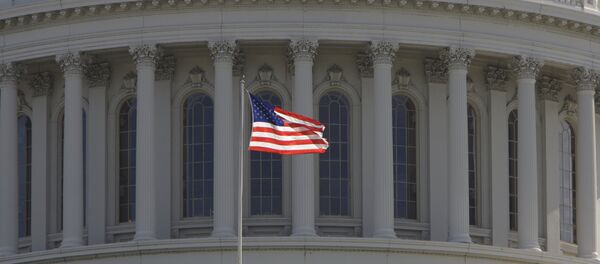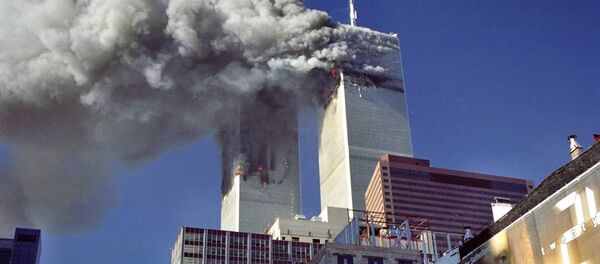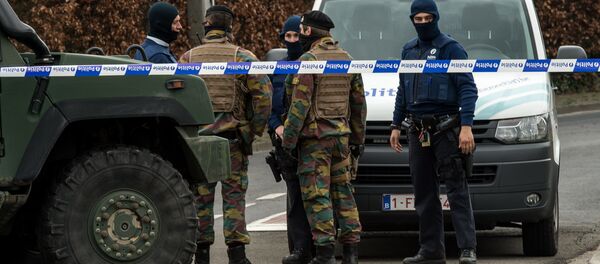The 15th anniversary of the worst terrorist act the humanity has ever seen is another opportunity to look back and analyze what has led to the reality where people feel as insecure as never before.
"Since 9/11, the scale, magnitude and severity of the terrorist threat has grown. Today, we are in an era of exponential conflict," Head of International Centre for Political Violence and Terrorism Research Rohan Gunaratna told Sputnik.
HOW IT ALL STARTED
It all started back in 1980s with the United States’ strive for the superiority over the Soviet Union and its readiness to use any means to this end, including the support of Islamic extremists, political affairs analyst and writer, author of "The Sword of the Prophet" and "Defeating Jihad" Srdja Trifkovic told Sputnik.
"It was after the Soviet intervention in Afghanistan [in 1979] that Jimmy Carter’s national security advisor Zbigniew Brzezinski decided that it should be the strategy for the United States to start arming jihadist elements in Afghanistan," Trifkovic said.
Attempting to create difficulties for the Soviet Union by making radical groups a political tool in its hands, the United States "let the genie out of the bottle" and turned jihad into a purely global phenomenon, the expert believes.
After the interference in the environment that is culturally and mentally adverse to the US values back-lashed, Washington opened a large-scale anti-terrorist campaign, which only fueled the flame of anti-US antagonism in the Middle East.
"A major contributing factor to the flowering of terrorism in the Western world today was the Iraqi intervention [by the United States]. The intervention in Iraq was the consequence of 9/11, but as we now know, the regime of Saddam Hussein had absolutely nothing to do with jihadism. In fact, he was a determined enemy of the Islamic extremism," Trifkovic continued.
The invasion toppled the government of Saddam Hussein. The price for it is still being paid.
"The Iraqi war directly gave rise to a whole range of jihadist organizations, including ISIS [Islamic State]," the expert said.
Today, Islamic State is the main global security threat. It has already taken over vast territories in Iraq and Syria and has made advances in other states, including Libya.
ALERTS NOT HEARD
"9/11 should have been an alert to the US, a sign that it is impossible to fight Islamic terrorism with one hand and to facilitate it as a tool of policy on the other hand," Trifkovic elaborated.
However, the US desire to find allies against Russia in the Middle East and to impose its own game rules in that part of the world has not changed.
Washington today supports some of the opposition groups fighting in Syria, calling them "moderate" and claiming that they were not directly linked to al-Qaeda.
"The mismanagement of conflicts in Afghanistan, Iraq, Libya, Egypt, Yemen, and Syria has escalated the threat manifolds. In place of one al-Qaeda, the world is facing many al-Qaedas. The Islamic State is its worst manifestation," Gunaratna believes.
More is yet to come. The United States is having a presidential election on November 8.
Democratic candidate and apparently a front-runner, former State Secretary Hillary Clinton is determined to continue and deepen the current Syria policy.
"I am afraid if Hillary Clinton is elected on November 8, this attitude [of involvement in Syria out of political interests] will continue. She advocates greater American mediation in Syria, which is a cover for the intervention against [president] Bashar Assad in order to change regime. And she has no coherent anti-terrorist strategy at all," Trifkovic said.
INTELLIGENCE SERVICES FAIL TO HANDLE
As more and more Muslim refugees flee their war-torn countries and arrive in Europe, blaming the West for the woes in their countries and thus being potentially perceptive for radical ideas, European intelligence agencies are overwhelmed and fail to guarantee their citizens’ security.
Inability of Europe to control the influx of migrants has made intelligence and security agencies unable to keep track of all the suspects that were seen in the attacks in Paris and Brussels, Trifkovic noted.
On November 13, a series of terrorist attacks were staged across Paris, leading to the death of 130 people and injuring over 350 others. On March 22, at least 35 people were killed and over 300 were wounded in several terrorist attacks in Brussels. Islamic State, which is outlawed in many countries, including Russia, has claimed responsibility for the violence in both the French and the Belgian capitals.
"With over a million of predominantly Muslim migrants and refugees coming to Europe only last year, and with the influx still continuing, the ability of security agencies to anticipate and prevent such attacks will be even less than it is today," Trifkovic said.
On July 14, a truck was driven into a crowd in Nice celebrating Bastille Day with 86 people killed and more than 400 injured.
In order to reduce the threat in the immediate, mid- and long term, "governments should create larger intelligence services and special operations capabilities to mitigate the rising extremist, terrorist and insurgent threat," Gunaratna believes.
On September 11, 2001, al-Qaeda suicide bombers hijacked four passenger planes in the United States, crashing two into New York's World Trade Center towers, another into the Pentagon and the fourth was sent in the direction of Washington D.C., presumably to attack the White House or the Capitol. Some 3,000 people lost their lives in the terrorist attack.
Thousands of people are expected to gather in Washington, DC to commemorate the victims of the tragedy on September 11 and take part in the commemorative run and the unity walk. In New York, a memorial ceremony will be held at the World Trade Center Site.






